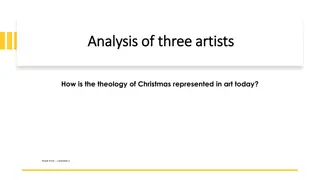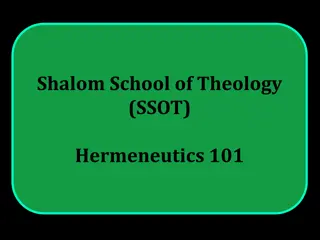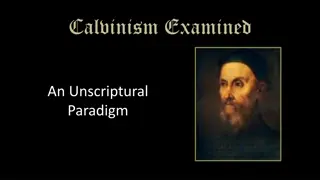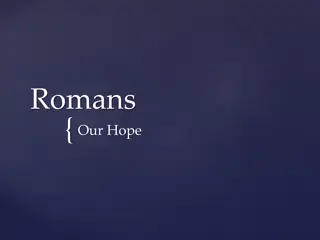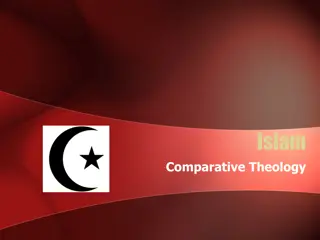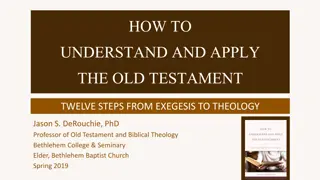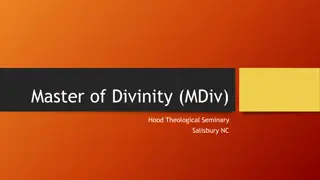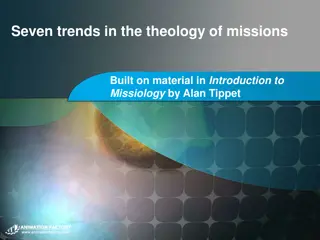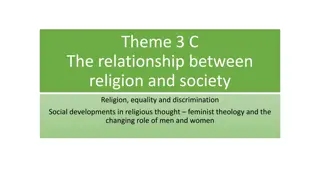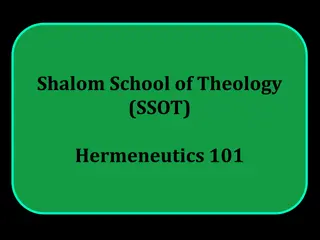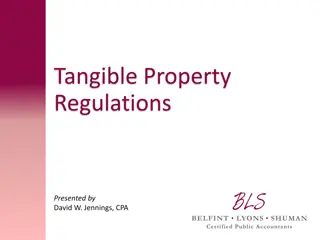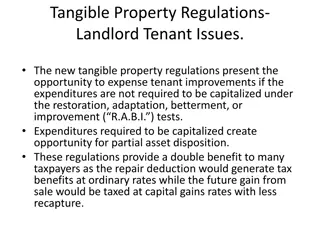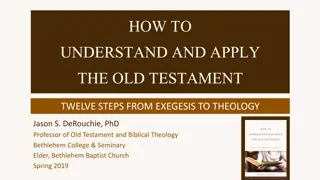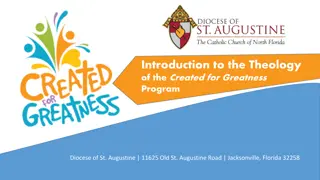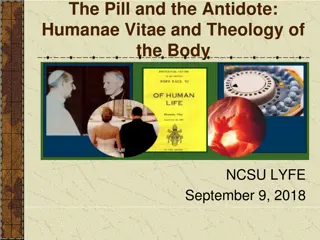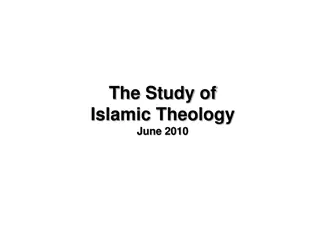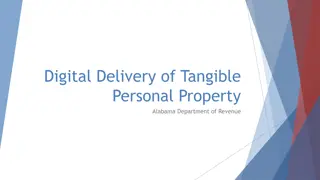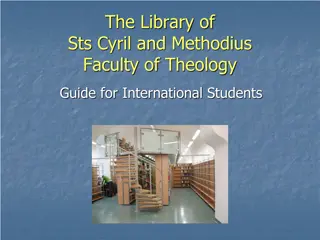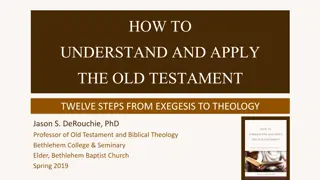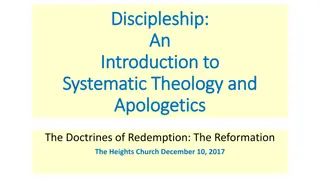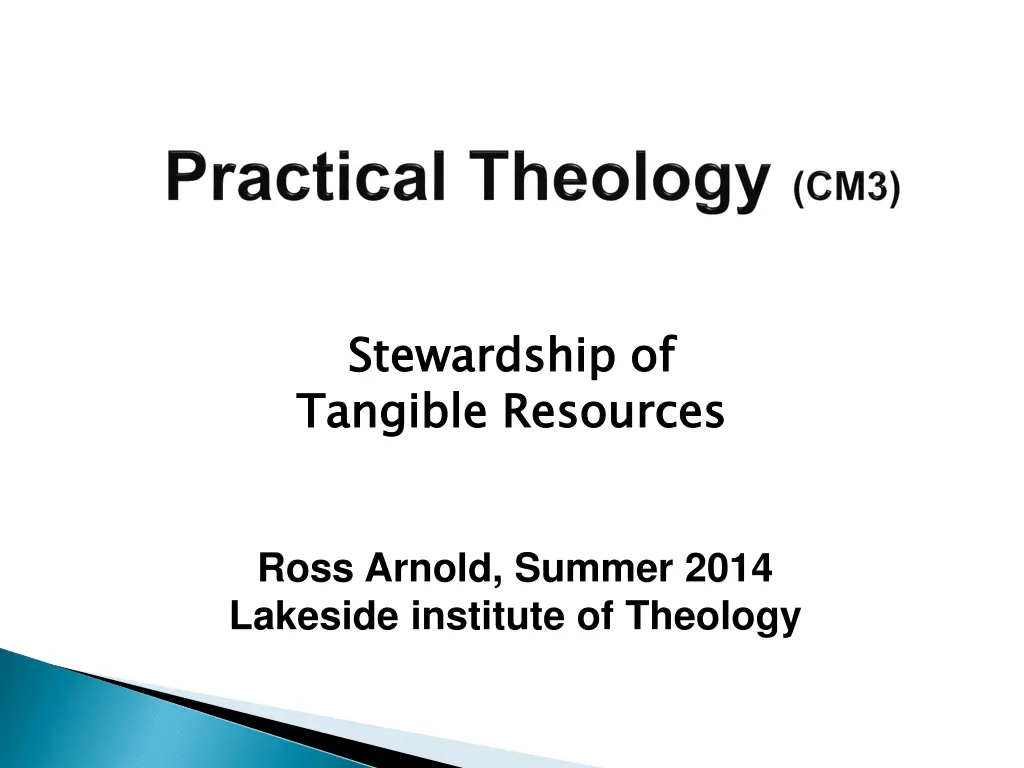
Biblical Stewardship of Resources
Explore the concept of biblical stewardship of tangible resources, encompassing money and material possessions. Learn how Christians are called to manage these resources responsibly for God's glory, contrasting the secular view of wealth and success. Embrace the biblical perspective on managing money and possessions with wisdom and purpose.
Download Presentation

Please find below an Image/Link to download the presentation.
The content on the website is provided AS IS for your information and personal use only. It may not be sold, licensed, or shared on other websites without obtaining consent from the author. If you encounter any issues during the download, it is possible that the publisher has removed the file from their server.
You are allowed to download the files provided on this website for personal or commercial use, subject to the condition that they are used lawfully. All files are the property of their respective owners.
The content on the website is provided AS IS for your information and personal use only. It may not be sold, licensed, or shared on other websites without obtaining consent from the author.
E N D
Presentation Transcript
Stewardship of Tangible Resources Stewardship of Tangible Resources Ross Arnold, Summer 2014 Lakeside institute of Theology
Practical Theology (CM3) Aug. 14 Intro to Practical Theology & Stewardship Aug. 21 Stewardship of Call & Vision Aug. 28 Stewardship of Faith & Commitment Sept. 4 No Class Sept. 11 Stewardship of Time & Opportunities Sept. 18 Stewardship of Tangible Resources Sept. 25 Stewardship of Influence Oct. 2 Call to Action; Final Exam
The conducting, supervising, or managing of something; especially, the careful and responsible management of something entrusted to one s care. A steward is someone who cares for something that belongs to someone else. As Christians, we know that all things are made by God and still belong to Him, and we are called to be stewards of everything God places (or entrusts) into our lives
Christian Stewardship has to do with every aspect of our lives and with every choice we make. Jesus calls us to be disciples. As disciples of Christ we must have a clear understanding of the biblical call to Whole Life Stewardship as our most fundamental act of obedience.
Tangible resources are of two types: money and material possessions. Money includes all liquid financial assets. Material possessions includes everything else you own that has potential value: your home, car, and all other earthly goods. Both money and possessions are a result of God s favor and blessing, rather than our personal achievements. Like all of the created world, these resources belong to God, but He gives us the privilege of using them, enjoying them and managing them for His glory.
Biblical stewardship of our money and material possessions requires Christians to view money differently from the way the secular world views it. The secular world equates affluence with success and happiness, and so struggles constantly to acquire as much wealth as possible. The Bible reveals the worthlessness of such a struggle, revealing the truth about money. People, despite their wealth, do not endure; they are like the beasts that perish. Whoever loves money never has enough; whoever loves wealth is never satisfied with their income as for the rich, their abundance permits them no sleep. Psalm 49:12 Ecclesiastes 5:10,12
Christians are NOT called to despise money or refuse it. Instead, we are called to have a right relationship with it, and to use it for the correct, God-honoring purposes. Those who want to get rich fall into temptation and a trap and into many foolish and harmful desires that plunge people into ruin and destruction. 10 For the love of money is a root of all kinds of evil. Some people, eager for money, have wandered from the faith and pierced themselves with many griefs. Keep your lives free from the love of money and be content with what you have, because God has said, Never will I leave you; never will I forsake you. 1 Timothy 6:9-10 Hebrews 13:5
Generosity is one of the primary ways in which Christians evidence the fruit of the Spirit at work in their lives. The angel answered, Your prayers and gifts to the poor have come up as a memorial offering before God. Acts 10:4-5 Religion that God our Father accepts as pure and faultless is this: to look after orphans and widows in their distress and to keep oneself from being polluted by the world. James 1:27 James, Cephas and John, those esteemed as pillars agreed that we should go to the Gentiles, and they to the circumcised. 10 All they asked was that we should continue to remember the poor, the very thing I had been eager to do all along. Galatians 2:9-10
Our goal in being good stewards of money and material resources is to invest them in ways that brings the greatest spiritual return and honor to God. How much we have is unimportant; how we invest it is very important. Whether we have a little or a lot, we can still give generously, joyously and sacrificially. From everyone who has been given much, much will be demanded; and from the one who has been entrusted with much, much more will be asked. Luke 12:48
As Christians, there are ultimately three things we can properly do with our money: 1. Give it cheerfully to achieve God- honoring purposes. 2. Spend it reasonably to meet personal needs and fulfill personal desires. 3. Save it strategically in order to continue meeting needs in the future. Honor the Lord with your possessions and with the first produce of your entire harvest Proverbs 3:9
As Christians, there are three keys we need to follow regarding material possessions: 1. Enjoy things, but don t cherish them. (Don t love anything that can t love you back.) Set your minds on things above, not on earthly things. Colossians 3:2 2. Share things joyfully, not reluctantly. Each of you should give what you have decided in your heart to give, not reluctantly or under compulsion, for God loves a cheerful giver. 2 Corinthians 9:7-8
As Christians, there are three keys we need to follow regarding material possessions: 1. Enjoy things, but don t cherish them. 2. Share things joyfully, not reluctantly. 3. Think like a pilgrim, not like a settler. Do not store up for yourselves treasures on earth, where moths and vermin destroy, and where thieves break in and steal. 20 But store up for yourselves treasures in heaven, where moths and vermin do not destroy, and where thieves do not break in and steal. 21 For where your treasure is, there your heart will be also. Matthew 6:19-21
Insights to remember: 1. Remember to use things and love people. Then he said to them, Watch out! Be on your guard against all kinds of greed; life does not consist in an abundance of possessions. 2. Remember that little things can make a big difference. 2. Remember that you can gain everything in this world and still be a big loser. What good is it for someone to gain the whole world, and yet lose or forfeit their very self? Luke 12:15 Luke 9:25-26
Insights to remember: 4. Remember that you can give away all you have, and still invest it as well. you sent me aid more than once when I was in need. 17 Not that I desire your gifts; what I desire is that more be credited to your account. Philippians 4:16-18 5. Remember that you will be called to give an account before God. So then, each of us will give an account of ourselves to God. Romans 14:12
Insights to remember: 6. Remember to be willing to give, and to give up. Whoever does not take up their cross and follow me is not worthy of me. 39 Whoever finds their life will lose it, and whoever loses their life for my sake will find it. Matthew 10:38-39 7. Remember to trust in the One who provides. Trust in the Lord with all your heart and lean not on your own understanding Proverbs 3:5
When we do give to the things of God through Christian ministries, remember: 1. While we all want ministries to be efficient and to show measurable results, the most important criteria is that the ministry is actively seeking to be spiritually faithful to God and His Word. 2. God does not need our money to see that His will is done. 3. God is ultimately responsible for results. 4. God will ensure the resources are distributed according to His desires. 5. Visible results from faithful ministry may not be evident for years or even generations.
Give, and it will be given to you. A good measure, pressed down, shaken together and running over, will be poured into your lap. For with the measure you use, it will be measured to you. Luke 6:38

